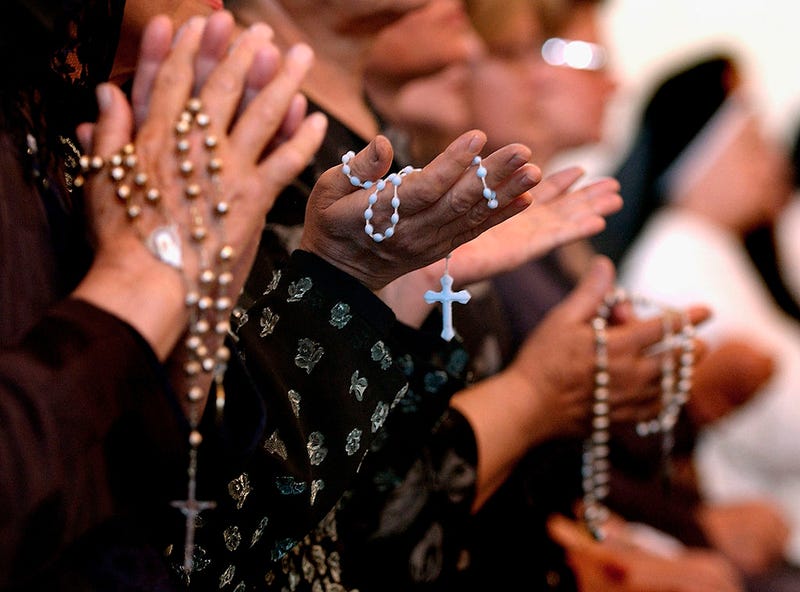
Highly religious Americans are the least concerned about climate change and and less convinced that human activity is causing warmer temperatures.
A new survey from the Pew Research Center claims highly religious Americans -- those who pray daily, regularly attend religious services and consider religion crucial in their lives -- are far less likely than other U.S. adults to express concern about global warming.
According to the survey, 72% of religiously affiliated Americans say the Earth is sacred and an even greater share (80%) express a sense of stewardship –- completely or mostly agreeing with the idea that "God gave humans a duty to protect and care for the earth, including the plants and animals."
At the same time, only 42% of highly religious Americans say climate change is an extremely or very serious problem; roughly 8% of all U.S. adults. Those who are highly religious and not as concerned about climate change make up a slightly larger share (11%), according to the survey.
So, why is the concern about global warming so low? The survey reveals several reasons religious Americans tend to be less concerned about climate change -- and first and foremost is politics.
The data shows highly religious Americans are more inclined to identify with the Republican Party, and Republicans tend to be much less likely than Democrats to consider climate change a serious problem.
"Religious Americans who express little or no concern about climate change also give a variety of other explanations for their views, including that there are much bigger problems in the world today, that God is in control of the climate, and that they do not believe the climate actually is changing," the survey points out. "In addition, many religious Americans voice concerns about the potential consequences of environmental regulations, such as a loss of individual freedoms, fewer jobs or higher energy prices."
The survey also notes that climate change does not seem to be a topic discussed much in religious congregations, and few Americans view efforts to conserve energy and limit carbon emissions as moral issues.
While majorities of all the large U.S. Christian subgroups say they think global climate change is at least a somewhat serious problem, there are substantial differences in the shares who consider it an extremely or very serious problem -- ranging from 68% of adults who identify with the historically Black Protestant tradition to 34% of evangelical Protestants, according to the survey.
The survey asked people who aren't concerned with global warming a few follow-up questions designed to learn more about their views.
"Many people in this category say that 'there are much bigger problems in the world today,' that 'God is in control of the climate,' or that 'climate change will not have a big impact on most people,'" the survey noted. "These explanations are more common than the belief that climate change is not happening."
Meantime, people who are less religious tend to be more concerned about the consequences of global warming. For example, the survey shows that religiously unaffiliated adults are much more likely to say climate change is a serious problem (70%) than are religiously affiliated Americans as a whole (52%).
Americans with low levels of religious commitment also are far more likely than their more religious counterparts to say the Earth is getting warmer mostly because of human activity, such as burning fossil fuels, according to the survey. Those who are highly religious are more likely to say that the Earth is getting warmer mostly due to natural patterns, or that there is no solid evidence the Earth is warming, the survey shows.
The data begs the question: Who is both highly religious and concerned about climate change?
"This group consists of people who identify with many different religious traditions, including members of the evangelical Protestant tradition (32%), Catholics (19%), members of historically Black Protestant churches (16%) and mainline Protestants (12%)," the survey notes. "Another 15% identify with other Christian groups, such as Orthodox Christianity or the Church of Jesus Christ of Latter-day Saints, and 4% identify with Judaism, Islam, Hinduism, Buddhism and other non-Christian religions."
According to the survey, the differences among these groups illustrate, once again, the role of politics in views toward climate change.
"Six-in-ten of those who are both highly religious and concerned about climate change identify as Democratic or lean toward the Democratic Party (59%). The highly religious and not very concerned, on the other hand, predominantly identify with or lean toward the GOP (83%)," the survey says.


